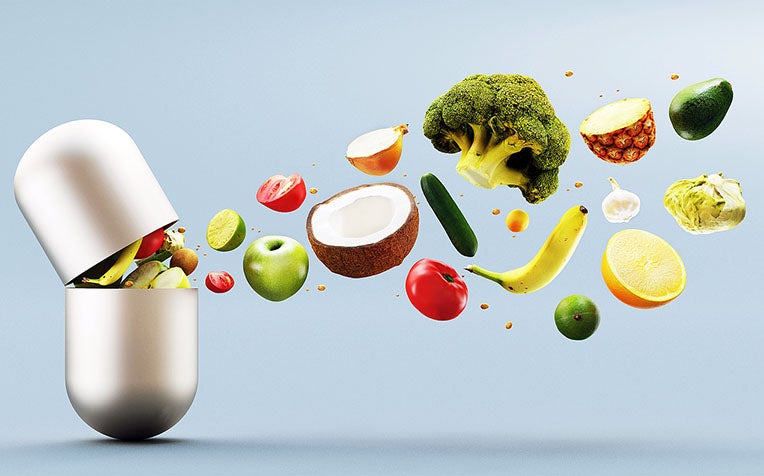
Antioxidant supplements have not been proven to effectively prevent cancer as studies at this stage are still inconclusive.
Can antioxidants prevent cancer? What about antioxidant supplements, how effective are they? Read on to find out.
Normal body functions such as breathing or physical activity, as well as unhealthy lifestyle habits such as smoking and drinking alcohol, all produce free radicals that attack healthy cells. When your cells are weakened by free radicals, they are more susceptible to developing certain types of cancers.
Antioxidants are a broad range of compounds that destroy free radicals. Many of these compounds are present in the diet as vitamins. The best known antioxidants are vitamin A, vitamin C and vitamin E.
Natural antioxidants are the best
The best way to get antioxidant vitamins is through healthy eating habits.
Fruits and vegetables contain essential vitamins, minerals, fibre and other nutrients including antioxidants. A good start to optimal health is to eat two servings of fruits and two vegetables a day (you can think of a "serving" as about a fistful).
Individuals who have diets rich in fruits and vegetables may have a reduced risk of cancer compared with those who eat a much higher proportion of high-fat and processed foods.
To have an idea of what to put on your plate daily, click here.
How effective are antioxidant supplements in preventing cancer?
Numerous studies have examined the association between dietary antioxidant intake and the risk of cancer. The results of these studies are summarised below. Surprisingly, it has been found that antioxidant supplementation for some disease groups may increase cancer risk.
Antioxidant supplementation and cancer prevention: Results based on randomised trials
Experimental Intervention | Sample Size | Duration of Study | Characteristics of Participants | Study Outcome |
|---|---|---|---|---|
B-carotene: 15mg/day Vit E: 30mg/day Selenium: 50mcg/day | 29,584 | 6 years |
Malnourished age:
| Lowers cancer rate |
B-carotene: 20mg/day compared to atocopherol: 50mg/day | 29,133 | 5 - 8 years Average 6 years |
Male smokers age:
| B-carotene: 20mg/day associated with increased risk in lung cancer in people who smoke and/or are exposed to asbestos |
B-carotene: 30mg/day and retinyl palmitate: 25 000IU/day | 18,314 | 4 years | Male and female age: 45 - 74 Smoker and/or occupational exposure to asbestos | No clear evidence of benefit |
B-carotene: 50mg on alternate days | 22,071 | 11.6 - 14.2 years, average 12 years |
Male age: 40 - 84 Current/former or | No clear evidence of benefit or harm related to cancer risk |
B-carotene: 50mg on alternate days | 39,876 | 0.00-2.72 years, median 2.1 years | Female age: > = 45 | No significant difference in incidence of cancer |
B-carotene: 25mg/day Vit C: 1000mg/day Vit E: 400IU/day | 864 | 4 years | Adenoma diagnosed Good health Age: < 80 | No clear evidence of benefit |
B-carotene: 50mg/day | 1,805 | 5 years | Recent non-melanoma skin cancer |
No clear evidence of benefit |
Ref: U11
Check out our comprehensive list of cancer articles:
Rise of Colorectal Cancer in Young Adults
Breast Cancer: What Puts You at Risk
Prostate Cancer: All You Need to Know
Nose Cancer: Signs, Diagnosis and Treatment
Liver Cancer: Causes, Symptoms, Treatment
Lymphoma Cancer: First Signs, Types, Treatment
Endometrial Cancer: Risk Factors, Symptoms, Treatment and Prevention
Ovarian Cancer: Causes, Symptoms, Treatment and Prevention
Cervical Cancer: Symptoms, Screening and How to Prevent
Stomach Cancer (Gastric Cancer): Symptoms and Treatment
Thyroid Cancer: Types, Symptoms and Treatment
Multiple Myeloma (Bone Marrow Cancer): Causes, Symptoms, Treatment
Skin Cancer: Types, Symptoms, Treatment and Prevention
Cancer Diet: Top Foods to Eat and Avoid When Undergoing Treatment



















 Get it on Google Play
Get it on Google Play